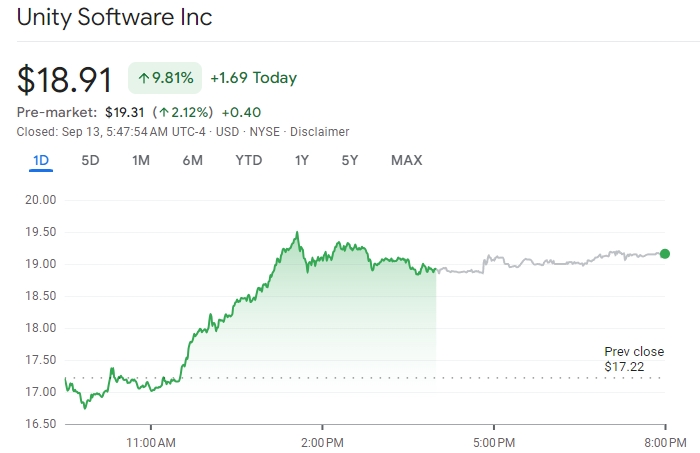The stock market has reacted positively to the cancellation of the Runtime Fee policy. However, this was still not enough to bring Unity shares back to September 2023 levels.

On September 12, Unity announced that the Runtime Fee will be removed entirely for all game development customers.
Despite canceling the controversial policy that charged developers per game installs, Unity increased the prices of its Pro and Enterprise subscriptions by 8% and 25%, respectively. CEO Matt Bromberg explained that customers “understand that price increases are a necessary part of what enables us to invest in moving gaming forward, but those increases needn’t come in a novel and controversial new form.”
As a result, the company’s stock rose by 9.81% to $18.91 per share, its highest since the end of May. At the time of writing, Unity shares hit $19.31 in pre-market trading.

While investors saw the decision to remove per-install fees as a positive sign, Unity shares are still well below their pre-Runtime Fee levels. The stock has been steadily declining since trading at over $30 per share in September 2023.
The Runtime Fee was only part of the problem. As part of its “company reset,” Unity has carried out several rounds of layoffs over the past 12 months, including 1,800 job cuts in January 2024. John Riccitiello stepped down as CEO last October, not to mention the company still remains unprofitable (it ended 2023 with a net loss of $826 million).
Unity shares have plunged more than 51% since the start of 2024, with a market cap of $7.5 billion. Overall, the stock is currently 10.4x lower than its all-time high of $196.65 in November 2021.
